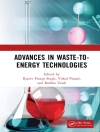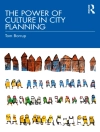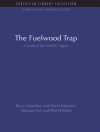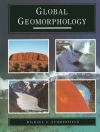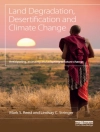‘A monumental and timely contribution to scholarship on society and environments. The handbook makes it easy and compelling for anyone to learn about that scholarship in its full manifestations and as represented by some of the most highly respected researchers and thinkers in the English-speaking world. It is wide-reaching in scope and far-reaching in its implications for public and private action, a definite must for serious researchers and their libraries.’
– Bonnie J Mc Cay, Rutgers University
‘This is the desert island book for anyone interested in the relationship between society and the environment. The editors have assembled a masterful collection of contributions on every conceivable dimension of environmental thinking in the social sciences and humanities. No library should be without it!′
– Robyn Eckersley, University of Melbourne
The SAGE Handbook of Environment and Society focuses on the interactions between people, societies and economies, and the state of nature and the environment. Editorially integrated but written from multi-disciplinary perspectives, it is organised in seven sections:
- Environmental thought: past and present
- Valuing the environment
- Knowledges and knowing
- Political economy of environmental change
- Environmental technologies
- Redesigning natures
- Institutions and policies for influencing the environment
Key themes include: locations where the environment-society relation is most acute: where, for example, there are few natural resources or where industrialization is unregulated; the discussion of these issues at different scales: local, regional, national, and global; the cost of damage to resources; and the relation between principal actors in the environment-society nexus.
Aimed at an international audience of academics, research students, researchers, practitioners and policy makers, The SAGE Handbook of Environment and Society presents readers in social science and natural science with a manual of the past, present and future of environment-society links.
İçerik tablosu
Introduction to Environment and Society – Jules Pretty, Andrew S. Ball, Ted Benton, Julia S. Guivant, David R. Lee, David Orr, Max J. Pfeffer and Hugh Ward
PART 1: ENVIRONMENTAL THOUGHT: PAST AND PRESENT
From Locke and Rousseau to Darwin and Wallace – Ted Benton Humans and Nature
Anarchism, Libertarianism and Environmentalism – Damian F. White and Gideon Kossoff
Anti-authoritarian Thought and the Search for Self-organising Societies
Ecofeminism – Mary Mellor
Linking Gender and Ecology
Deep Ecology – Ted Benton
Greening the Left? From Marx to World-system Theory – Ted Benton
Human Relationships, Nature, and the Built Environment – Warwick Fox
Problems that any General Ethics must be able to Address
Anti-Environmentalism – Damian F. White, Chris P. Wilbert and Alan Rudy
Prometheans, Contrarians and Beyond
PART 2: VALUING THE ENVIRONMENT
Fundamental Economic Questions for Choosing Environmental Management Instruments – Thomas D. Crocker
Valuing Preferences regarding Environmental Change – Ian J. Bateman
Economic Valuation of Ecosystem Services – Randall A. Kramer
Assessing Environment-Development Tradeoffs – David R. Lee
A Developing Country Perspective
Water Policy, Economics, and the EU Framework Directive – Joe Morris
PART 3: KNOWLEDGES AND KNOWING
Ecological Design and Education – David W. Orr
Knowing Systems and the Environment – Richard Bawden
Volunteer Environmental Monitoring, Knowledge Creation and Citizen-scientist Interaction – Max Pfeffer and Linda Wagenet
Environmental Ethics – Val Plumwood
Biocultural Diversity and Sustainability – Luisa Maffi
PART 4: POLITICAL ECONOMY OF ENVIRONMENTAL CHANGE
Representative Democracy and Environmental Problem Solution – Ron Johnson
Political Ecology from Landscapes to Genomes – Ron J. Herring
Science and Interests
Protest Movements, Environmental Activism and Environmentalism in the United Kingdom – Steven Griggs and David Howarth
Faces of the Sustainability Transition – Tim O′Riordan
The Greening of Business – Christina Page and Amory Lovins
Opportunity or Contradiction?
PART 5: ENVIRONMENTAL TECHNOLOGIES
The Human Dimensions of Global Environmental Change – Thomas J. Wilbanks and Patricia Romero-Lankao
Healthy Environments – Howard Frumkin
Air pollution – Ian Colbeck
History of Actions and Effectiveness of Change
Terrestrial Environments, Soils and Bioremediation – Andrew S. Ball
Regenerating Aquaculture – Stuart W. Bunting
Enhancing Aquatic Resources Management, Livelihoods and Conservation
Shopping for Green Food in Globalizing Supermarkets – Peter Oosterveer, Julia Guivant and Gert Spaargaren
Sustainability at the Consumption Junction
PART 6: REDESIGNING NATURES
Healthy Ecosystems – David J. Rapport
An Evolving Paradigm
Environment and Human Security – Laura Little and Chris Cocklin
Sustainable Agriculture and Food Systems – Jules Pretty
Animals and Society – Henry Buller and Carol Morris
Social Change and Conservation – Madhav Gadgil
Coral Reefs and People – Dave Smith, Sarah Pilgrim and Leanne Cullen
PART 7: INSTITUTIONS AND POLICIES FOR INFLUENCING THE ENVIRONMENT
The Role of Science and Scientists in Environmental Policy – Jon Hastie
Integrated Social-ecological Systems and Adaptive Governance for Ecosystem Services – Carl Folke, Johan Colding, Per Olsson, and Thomas Hahn
Contested Ground in Nature Protection – Steven R. Brechin, Grant Murray and Charles Benjamin
Current Challenges and Opportunities in Community-based Natural Resources and Protected Areas Management
Institutions, Collective Action and Effective Forest Management – Harini Nagendra and Elinor Ostrom
Learning from Studies in Nepal
The Precautionary Principle in Environmental Policies – Albert Weale
Environmental Risks and Public Perceptions – Ulrich Beck and Cordula Kropp
Yazar hakkında
MAX J. PFEFFER is International Professor of Development Sociology and Senior Associate Dean of the Cornell University College of Agriculture and Life Sciences. His teaching concentrates on environmental sociology and sociological theory. His research spans several areas including rural labor markets, international migration, land use and environmental planning. The work has focused on a variety of rural and urban communities, including rural/urban fringe areas. Research sites include rural New York and Central America. He has been awarded competitive grants from the National Institutes of Health, the National Science Foundation, the U.S. Environmental Protection Agency, the U.S. Department of Agriculture′s National Research Initiative and its Fund for Rural America, and the Social Science Research Council. Pfeffer has published a wide range of scholarly articles and has written/co-edited four books. He recently published (with John Schelhas) Saving Forests, Protecting People? Environmental Conservation in Central America. Max has served on and led National Research Council committees of the Water Science and Technology Board. Max has served as Chair of the Development Sociology Department, and the Associate Director of both the Cornell University Agricultural Experiment Station and the Cornell University Center for the Environment.


